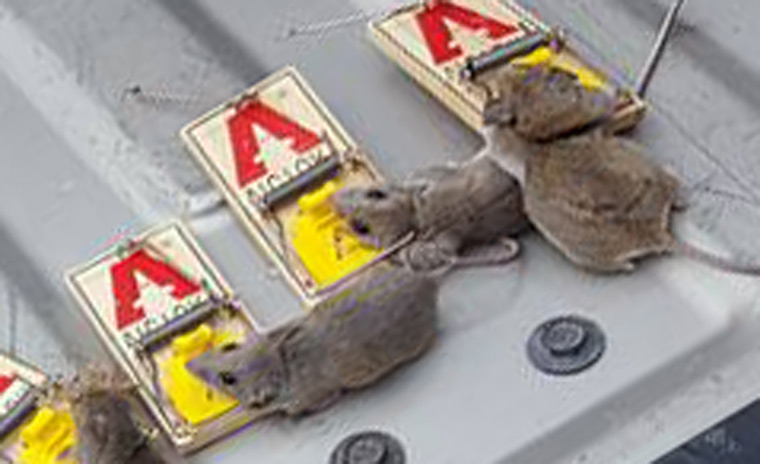-
info@aaanimalcontrol.com
Call us for help in your town
Humane Wildlife Education
What attracts mice?
Need wildlife removal in your hometown? We service over 500 USA locations! Click here to hire us in your town and check prices- updated for year 2020.
We don't like to sugar-coat things here. Bad sanitation and hygiene is usually what attract mice to a building. If you drop crumbs on the floor and then don't clean them up, leave food-coated wishes all around the place for days on end, and leave garbage bags all over the place, even torn apart in some cases, you are probably going to have mice. Or, worse than that, rats.

These rodents, much like other wild critters, are just looking for some food. Take a peek at your garden right now. How many food sources can you see? Do you have a fruit tree? Do you pick up fruits that fall to the ground immediately? If you don't, you have provided mice with an outdoor food source. Opossums are another bad culprit for stealing rotten or fallen fruits too.
Foods meant for other animals often entice in rodents, such as mice and rats. A bird feeder, for example, may seem basically harmless hanging from a tree branch, but when the wind blows or the birds bounce up and down on the feeder, seeds and nuts fall out and to the ground. These are foods just waiting to be picked up by a passing critter. If you leave food outside for your own pets, you are more than likely going to encourage mice and rats to come closer.
Water is another reason why mice would be attracted to your land, and this is even more so the case if you have ponds, pools, or even bird baths. Mice actually drink quite a lot of water, although not quite so much as rats, and they almost always look for a nesting spot that is close to a source of water.
If it's not food or water that the mouse is looking for, it'll be something else - shelter, perhaps, from a predator. Barn owls love to hunt mice, and they do a pretty good at it too. Snakes also eat mice, as do hawks and other owls, eagles, dogs and cats, and even skunks or raccoons. When the mouse is under attack, it will run and hide in whatever tiny spaces it can. It just wants to live. Your home and its many holes and weak spots make for perfect hiding places.
Warmth is another reason a house mouse would want to invade your home, and this is why many nesting spots are found in and around heaters, particularly water heaters. This may warm your heart, knowing you are keeping a small family of mice alive, but we're sure your heart wont be so warm once the mice have chewed through some of the pipes that lead in or out of your water heater, and maybe even flooded your home. This is the kind of damage that rodents can do, and that's the tip of the iceberg. You'd be amazed by the threat to human life these creatures, mice and rats like, can pose.
Those are the things that attract mice to your property — food, water, shelter, or warmth. Take a look around you. Are you providing them? Do you have piles of garden waste and debris lying around that these critters could use for shelter? The more you tidy up, the fewer places these rodents have to hide. Take away food sources, cut back trees, and make sure that your home is entirely protected. It is time for a house inspection to work out where those weak spots are. If your home isn't entirely sealed, it won't be long before a mouse moves in, and once that mouse moves in, many others will follow in its footsteps.
For more information, you may want to click on one of these guides that I wrote:
How to get rid of mice - my main mouse removal info guide.
how to get rid of mice in the attic
how to kill mice
What does mouse poop look like
mice in the walls


















